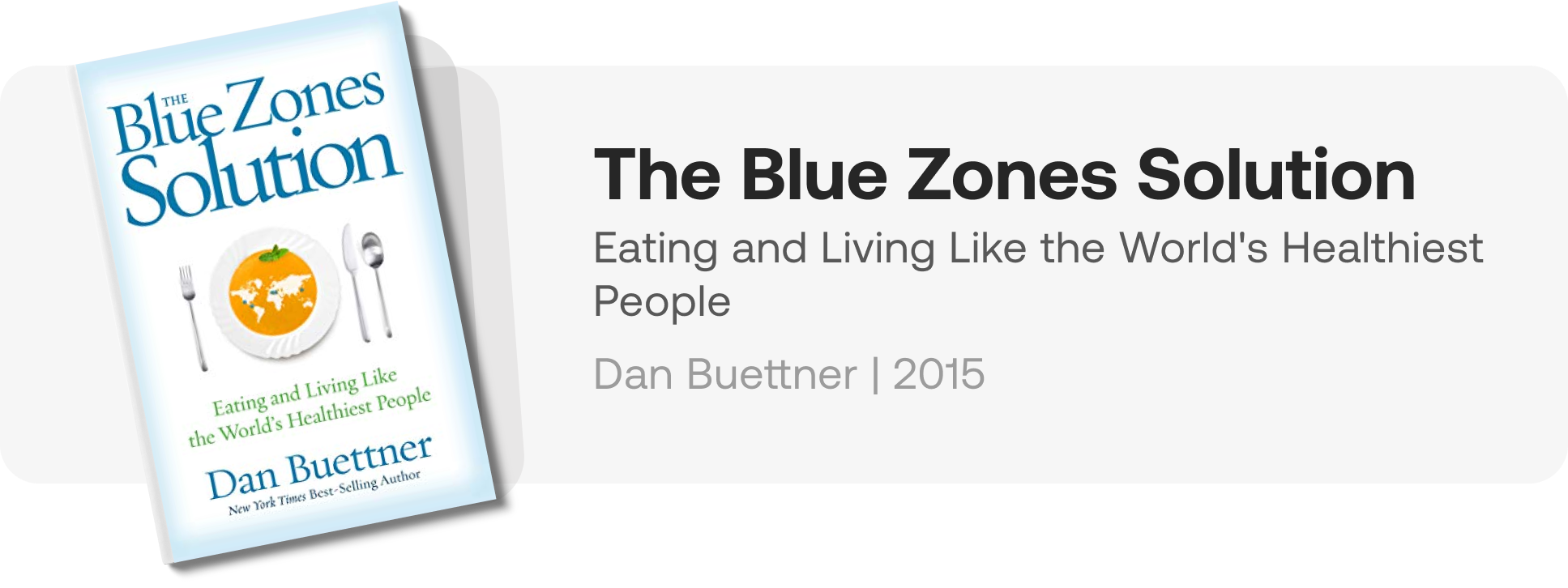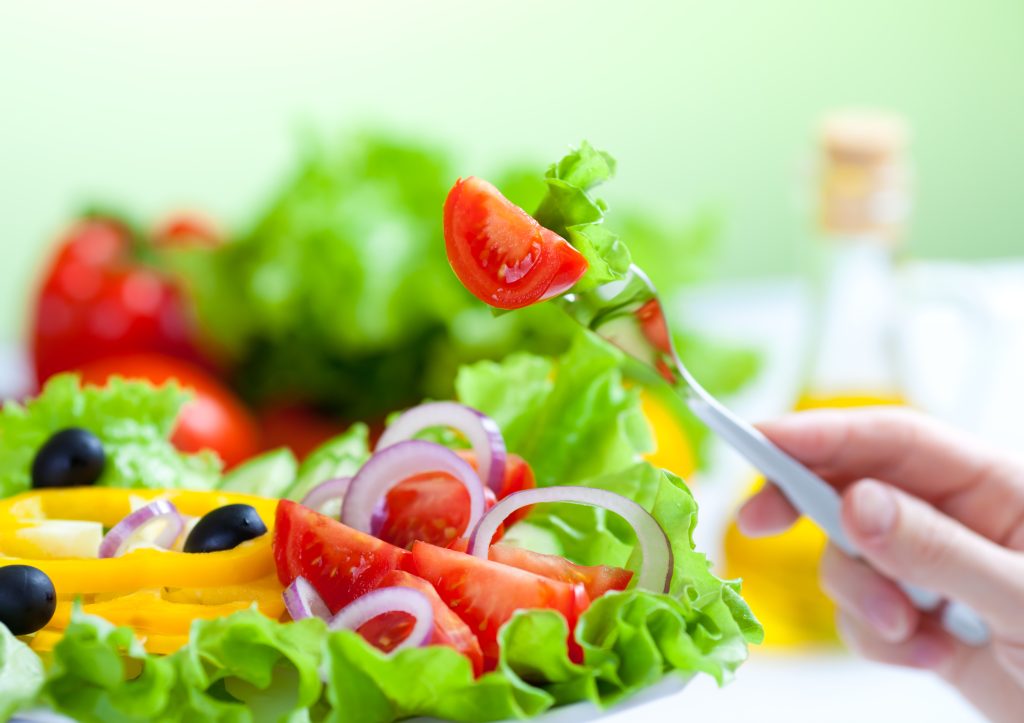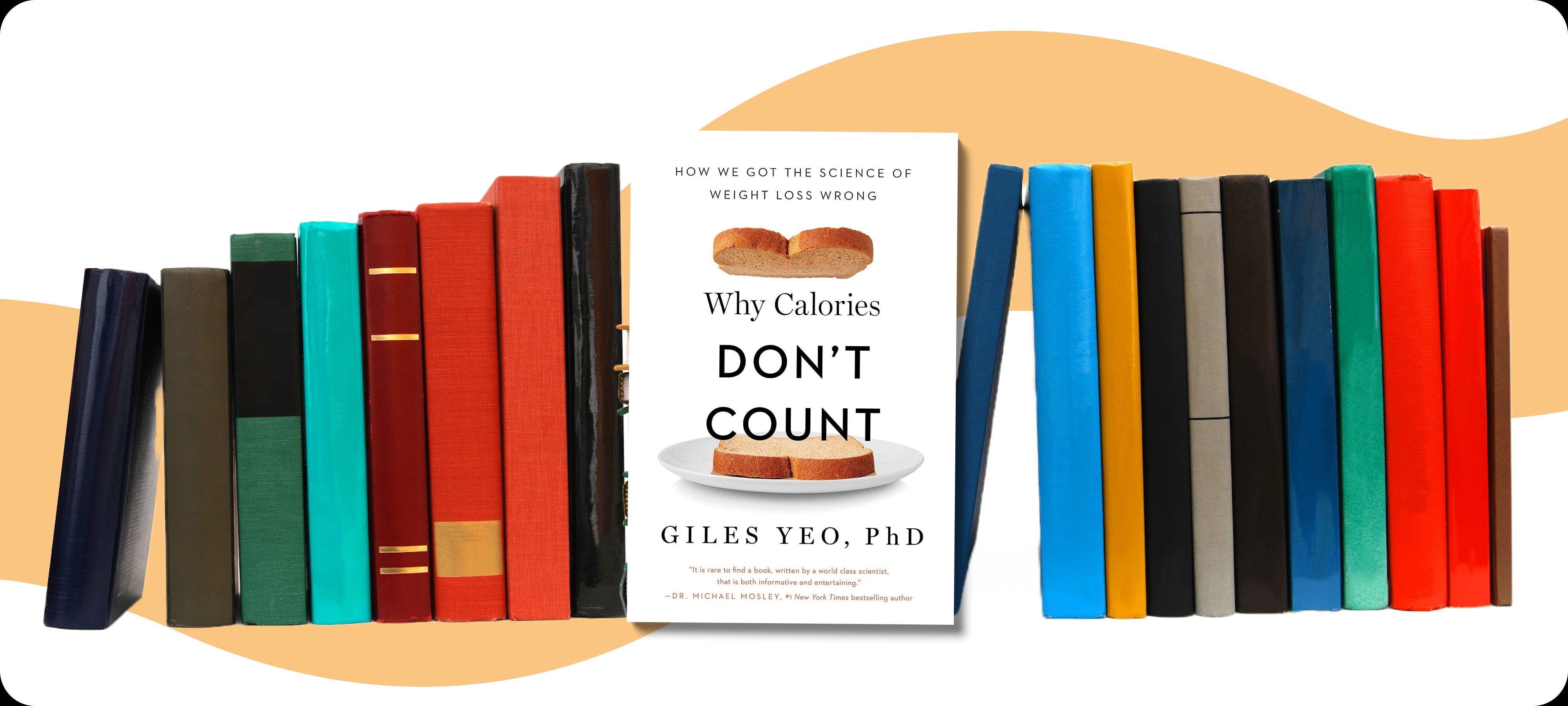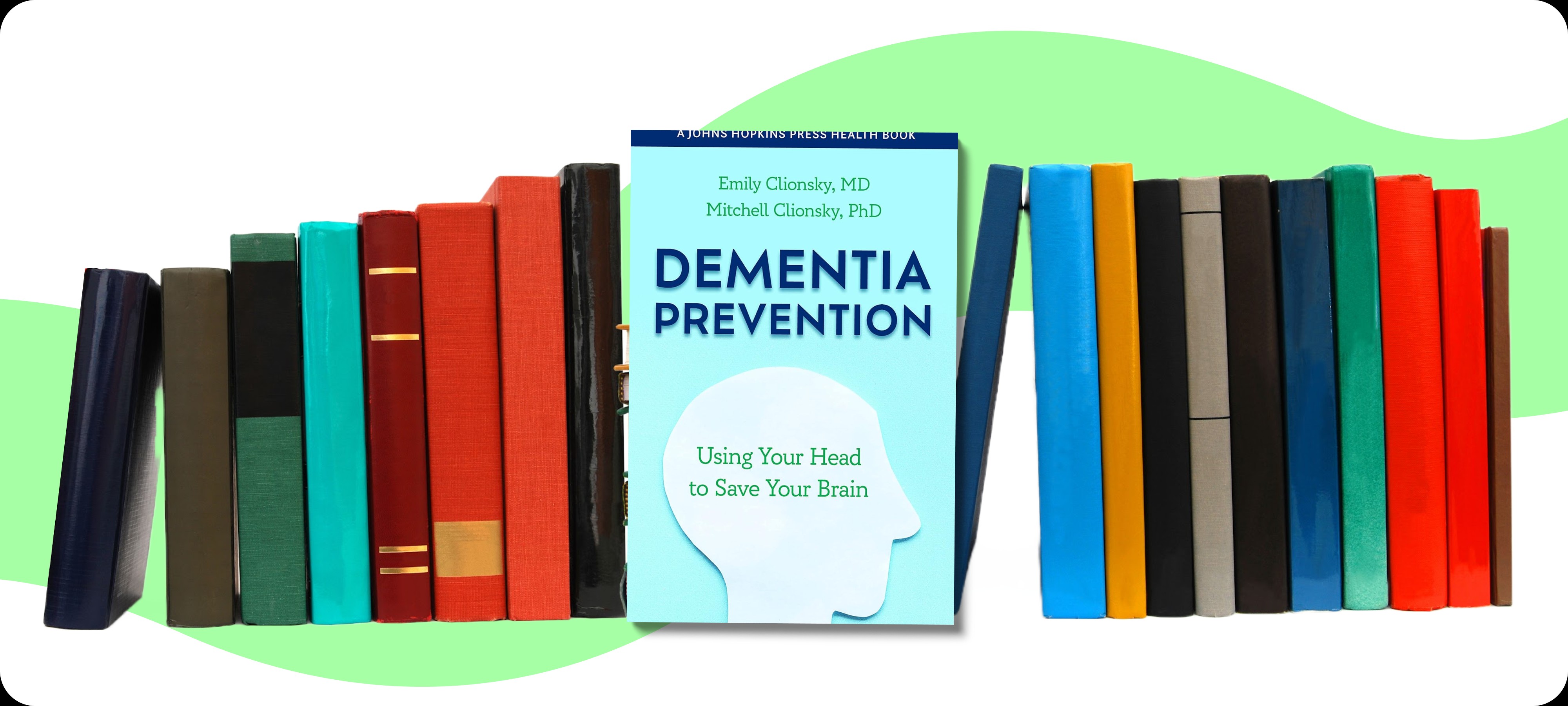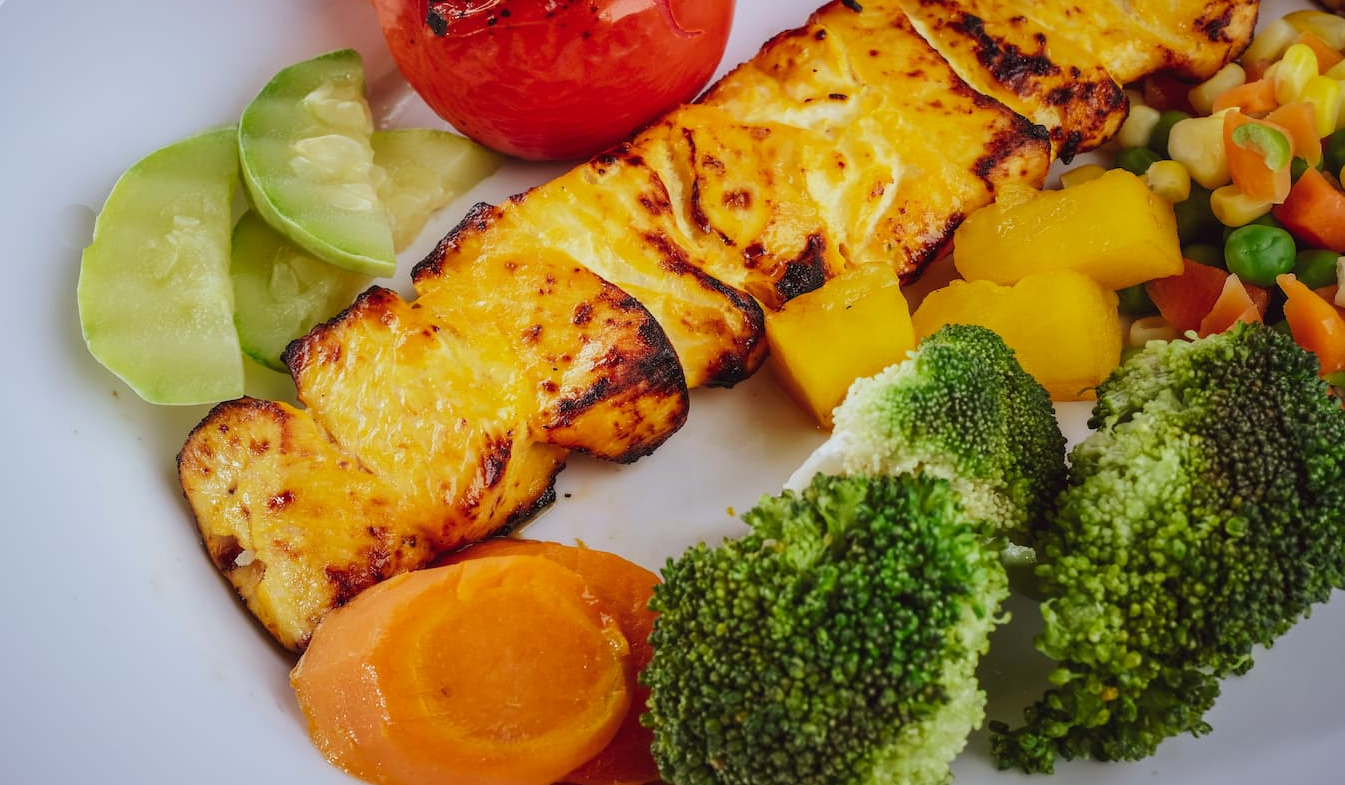Longevity vastly stems from one’s food choices. And longest-lived people of Blue Zones make longevity happen to them by not counting calories or restricting food intake, instead, they celebrate food, share meals with family and friends and eat pesticides-free, homegrown vegetables and fruit that serve as a great longevity-promoting addition to their healthy lifestyles.
In this article, we will dive into the ten Blue Zones tips on how to make your food choices more longevity-friendly.
The five Blue Zones are:
-
Ikaria, Greece
-
Okinawa, Japan
-
Sardinia, Italy
-
Loma Linda, California, U.S.
-
Nicoya Peninsula, Costa Rica
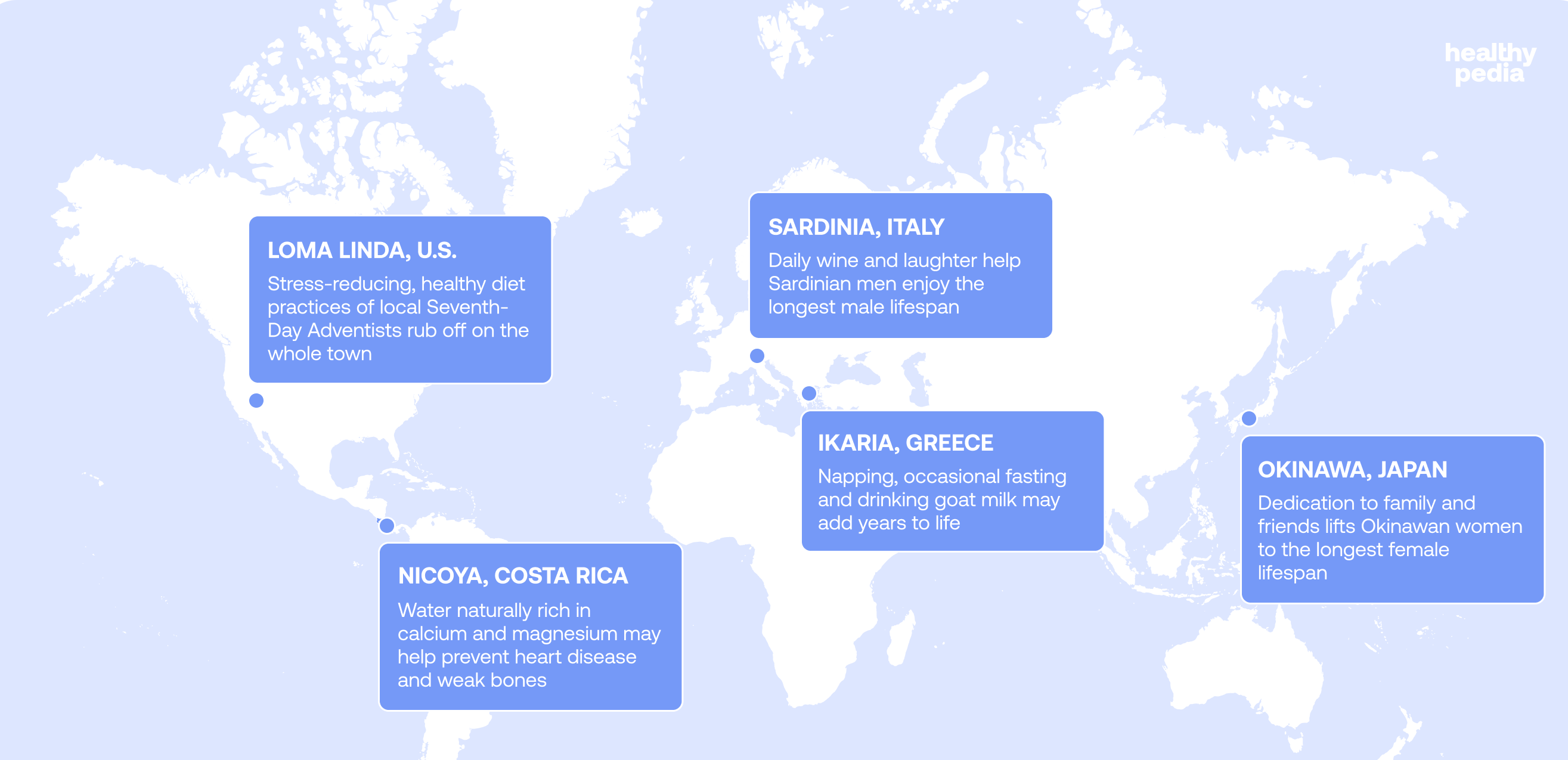
Tip 1: Make sure 95% of your food is plant-based
People of all five Blue Zones rarely consume meat. Thus, Adventists of Loma Linda, California do this due to their religious beliefs while, for example, Ikarians do not have meat as a staple food due to its high prices and the remoteness of Ikaria.
To incorporate this habit, try to limit meat intake and have six servings of vegetables daily, enriching your diet with a variety of beans, greens, nuts and seeds.
Studies have shown that middle-aged people who ate a cup of cooked greens on a regular basis were 50% less likely to die in the next four years if compared to people who did not consume greens.
Tip 2: Eat meat only two times a week

For long-livers, meat is a celebratory product and comprises only 5% of their typical diet. To take advantage of this Blue Zone habit, have your meat no more than twice a week and opt for free-range chicken, family-farmed pork or lamb. Try to avoid processed meats as they bring more harm than good. Interestingly, in one hot dog, there are as many nitrosamines (compounds similar to tobacco carcinogens) as in four cigarettes.
Studies showed that eating less meat can reduce the risk of dying, especially if followed for a long time (at least 20 years). In fact, sticking to a low-meat diet for a long time was associated with a significant decrease in the risk of death and an increase in life expectancy of about 3.6 years.
However, if you decide to lower the meat intake you should do it gradually and make sure you meet your vitamin and macronutrient needs by eating more legumes, nuts, and whole grains.
Tip 3: A daily serving of fish should be ~ 90 grams
In the Blue Zones, people often consume small and affordable types of fish like sardines, anchovies, and cod. These fish are considered to be in the middle of the food chain and are less likely to be contaminated with high levels of mercury or other harmful chemicals.
The Adventist Health Study 2 has been tracking the lives of 96,000 individuals in the United States since 2002. Surprisingly, the study discovered that in Loma Linda, people with the longest lifespan were not vegans or meat-eaters. Instead, they belonged to a group known as pesco-vegetarians, who followed a plant-based diet but ate a small amount of fish daily.
Thus, try to incorporate fish into your daily nutrition plan and opt for small fish, avoid farmed fish as it can be grown with the use of antibiotics and pesticides.
Tip 4: Do not overdo eggs, have no more than 3 per day

In all five Blue Zones, people consume eggs from two to four times a week. In Nicoya, eggs are fried and folded into a corn tortilla, which is served with beans. In Okinawa, boiled eggs are added to a soup. And in the Mediterranean Blue Zones, eggs are often fried and served as a side dish for breakfast, along with bread, almonds, and olives. The emphasis in these regions is on incorporating eggs as part of a larger, plant-based meal.
While eggs are an excellent, filling source of protein, they are also rich in group B vitamins, vitamins A, E and D. The results of the Adventist Health Study 2 showed that people who followed a vegetarian diet but ate eggs lived a little longer than vegans.
Besides being a great vitamin and protein source, egg intake has been linked to a higher likelihood of prostate cancer and kidney problems development. Thus, eat no more than 2-3 eggs daily (or even fewer) and choose ones from free-range chickens.
Tip 5: Have a cup of beans daily
Beans are a staple food in all five Blue Zones. In fact, long-livers eat four times more beans than Americans. Beans are really great source of plant-based protein, fibre, folate, iron, potassium and magnesium. Okinawans like to add them to miso soup, while centenarians of Costa Rica put beans to breakfast burritos and gallo pinto (rice and beans dish).
One study found that consuming 20 g of beans daily has the potential to lower death risk by 8%.
To have more beans in your diet make sure your pantry has various types of them, sprinkle beans on your salad, and consider preparing large batches of beans and dividing them into portions to be stored in the freezer and used when needed. You may also go to a Mexican restaurant when you decide to eat out, as this cuisine uses beans in lots of dishes.
Tip 6: Cut down on sugar
Instead of mindlessly indulging in sugary treats, Blue Zone inhabitants reserve them for special occasions. Their daily sugar intake typically comes from natural sources like honey that they add to their tea.
To emulate their healthy approach, we should limit our consumption of cookies, candies, and bakery items to a few times a week, ideally as part of a meal. Try to reduce the amount of sugar you add to coffee, tea, or other foods to a maximum of four teaspoons daily.
By breaking the habit of snacking on sugar-heavy sweets, we can protect our immune system, prevent diseases, manage insulin levels, maintain fertility, and promote longevity. The key lesson from the Blue Zones is to consume sugar intentionally, not as a mindless habit or accident, thereby reaping the benefits of a balanced and conscious dietary approach.
Tip 7: Have nuts as a snack
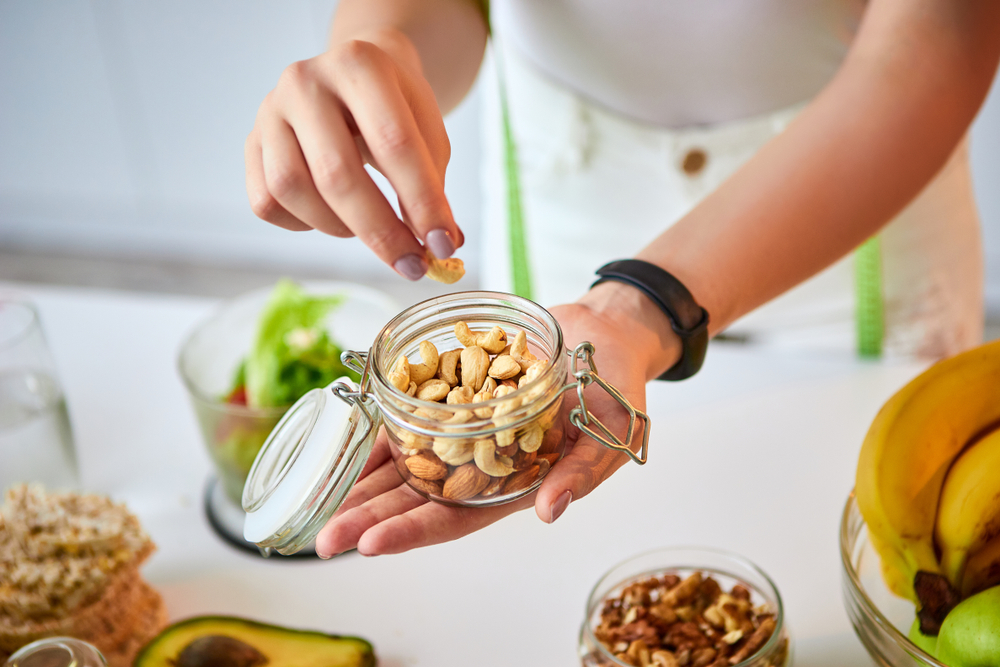
The Blue Zones’ centenarians eat a handful of nuts on a daily basis. In Ikaria and Sardinia, people prefer almonds and in Necoya pistachios are the most common nut.
The Adventist Health Study 2 has proven that people who consume nuts regularly live 2-3 years longer than those who do not. Other studies prove that nut consumption can lower the LDL ‘bad’ cholesterol and risk of coronary artery and cardiovascular diseases. What is more, five 28-gram servings of nuts are said to reduce the risk of premature death from all causes by 31%.
To have more nuts in your diet, you may try to snack on them, keep nuts near your workplace and take them on a road trip or eat them on a flight. You may also consider adding nuts to your salads and soups.
Tip 8: Opt for sourdough or 100% whole wheat bread
The bread commonly found in stores, made from bleached white flour, quickly turns into sugar when metabolised, leading to empty calories and insulin spikes. Additionally, gluten in bread can cause digestive issues for some individuals.
In contrast, bread in the Blue Zones follows a different approach. It is either made from whole grains or sourdough, each offering unique health benefits. Blue Zones like Ikaria and Sardinia utilise a variety of whole grains such as wheat, rye, and barley, which provide essential nutrients like tryptophan, selenium, and magnesium. These whole grains are also rich in fibre compared to commonly used wheat flour. Notably, barley, in particular, has shown a strong correlation with longevity in Sardinia.
In other Blue Zones, bread is made with natural bacteria called lactobacilli, which ferment the starches and glutens, resulting in a rise in the bread and the creation of a pleasantly sour taste. Interestingly, traditional sourdough bread has lower gluten content than those labelled ‘gluten-free’ and contributes to a longer shelf life. Most importantly, sourdough bread lower the glycemic index, which makes it better for the pancreas and more likely to convert calories into energy rather than stored fat.
Tip 9: Eat whole foods
Centenarians mostly consume whole foods, meaning their approach to food preparation is simple, focusing on raw fruits and vegetables, grinding their own whole grains, and utilising slow cooking methods.
The majority of the food consumed by centenarians in the Blue Zones, accounting for up to 90%, is sourced from within a ten-mile radius of their homes.
By predominantly consuming whole foods, the residents of Blue Zones seldom consume artificial preservatives. The inclusion of slow-digesting grains in their diet helps to prevent spikes in blood sugar levels.
To ensure whole food consumption, try to go grocery shopping at local farmers’ markets, and avoid buying highly processed snacks and ready-to-eat meals.
Tip 10: Drink water, coffee, tea, and wine (if desired)

Long-livers never consume any sugary drinks and sodas. They only drink water, coffee, tea and sometimes wine.
Adventists specifically advise individuals to consume seven glasses of water per day. They emphasise that staying adequately hydrated promotes healthy blood flow and reduces the risk of blood clots.
People of Sardinia, Ikaria, and Nicoya have a notable consumption of coffee. And studies prove a positive effect of this drink as it has been linked to the reduction of dementia and Parkinson’s disease occurrences.
In every Blue Zone, tea is a popular beverage choice. Okinawans enjoy green tea throughout the day, which has been associated with a reduced risk of heart disease and certain cancers. Ikarians, on the other hand, consume herbal infusions made from rosemary, wild sage, and dandelion, all of which possess anti-inflammatory properties.
People of Blue Zones do consume wine. Interestingly, in the 1930s Sardinians have been said to drink 7 litres of wine per month per person. And this may really contribute to their life expectance rates as moderate wine intake lowers heart attack risks and has high antioxidant content.
However, one should keep in mind that the recommended dose of wine is no more than two or three glasses a day. If this rule is violated, adverse effects can occur, for instance, higher breast cancer risks.
Let’s summarise

The residents of Blue Zones have shown us that longevity is greatly influenced by our food choices. Rather than counting calories or restricting food intake, they celebrate food, share meals with loved ones, and prioritize pesticide-free, homegrown fruits and vegetables.
By incorporating their wisdom into our own lives, we can make our diets more longevity-friendly. These ten tips from the Blue Zones provide valuable insights into creating a healthier lifestyle through food choices. From embracing a plant-based diet to enjoying meat as a celebratory treat, incorporating fish, eggs, beans, nuts, and whole foods, and being mindful of sugar intake, we can make significant strides towards promoting our own longevity.
By adopting these habits, not only can we improve our own well-being, but we can also cultivate a deeper appreciation for the nourishment and joy that food brings to our lives. Let’s embrace the wisdom of the Blue Zones and embark on a journey of healthier eating for a longer and more vibrant life.
Not enough? Here is more
In the book The Blue Zones Solution by Dan Buettner, the author shares invaluable insights and practical strategies to improve your health by adopting the nutrition, lifestyle, and fitness habits observed in the Blue Zones. Drawing from his extensive studies of communities with the world’s longest-lived individuals, such as Okinawa, Sardinia, Nicoya, Ikaria, and Loma Linda, Buettner presents a comprehensive guide on how to transform your well-being.
Healthypedia gives credit to the Blue Zones recipes from Buettner’s book, as they’ve inspired this article’s creation.
